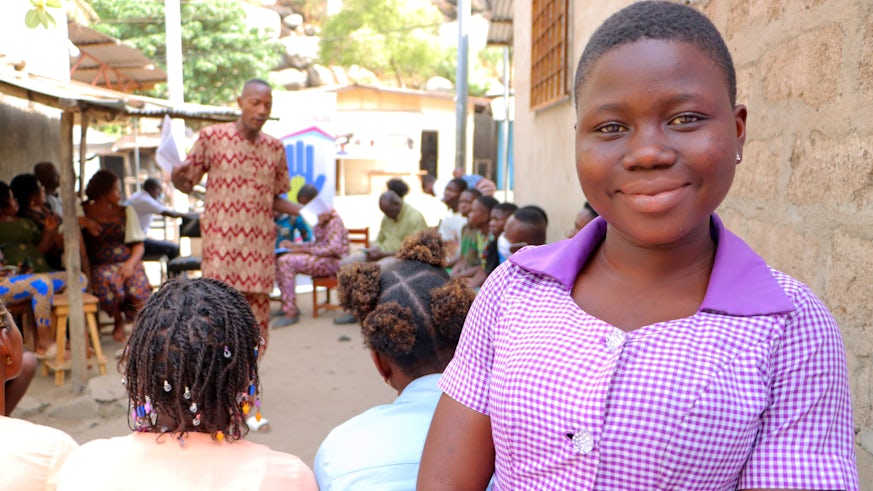Using research to enable girls to speak about sexual and reproductive health
7 March 2024

A lecturer at the School of Law and Politics has teamed up with a leading international children’s charity to deliver a radio programme aimed at sparking conversations about girls’ rights in Benin, West Africa.
Dr Rosie Walters is working with Plan International on a project based on research from their Real Choices Real Lives (RCRL) study, which has been following the lives of 142 girls since their birth in 2006. The girls live across 3 continents in 9 countries (Benin, Brazil, Cambodia, Dominican Republic, El Salvador, The Philippines, Togo, Uganda and Vietnam). Regular in-depth interviews with the girls and their caregivers explore gendered attitudes and norms in each community and how they impact on girls’ daily lives. RCRL has gathered data on a vast array of topics and themes – including education (and its relationship to climate change), health (including sexual and reproductive health and rights), hunger, protection and violence, girls’ activism and participation in civic spaces the ways in which girls are challenging gender norms, and many others. The study will continue to collect data until all girls reach the age of 18 in 2024.
In particular, analysis of the study data in 2021 found that girls in Benin wanted more information on their bodies and wellbeing from their parents and caregivers. Parents, however, felt that girls should be learning about sex and relationships at school or in church. Research findings also showed that across the 9 study countries, parents felt the best way to protect girls from sexual violence was to place tight restrictions on their behaviour, while girls themselves wanted parents to do more to address the harmful behaviours of men and boys.
Dr Walters explains, “We could see from the data that there was a clear desire from girls to have conversations with their families about healthy relationships. They wanted to understand topics like sex and menstruation, but instead their parents tended to tell them to stay away from boys. With this project, we wanted to summarise that evidence in a way that young people themselves could then use it to spark conversations about their rights and wellbeing.”
In 2023, Dr Walters and Dr Keya Khandaker from Plan International were awarded funds from the Arts and Humanities Research Council to do exactly that. They developed their research findings into stories and experts from Plan International’s team in Benin then recruited young people to develop the stories into radio scripts. The final broadcast featured recorded scenes, discussions with young people and a phone-in session with listeners, exploring the topic of girls’ sexual rights and wellbeing. Feedback from adults and young people alike showed they had gained a better understanding of the topic and wanted to have more conversations about it in future. Key to this project is that it benefited from being based on girls’ experiences, derived from RCRL evidence, and then is informed by youth in writing the radio sketches, ensuring there is clear ownership and relevance of the radio programme for the local community.
The researchers have now produced a guidance note, reflecting on lessons learnt during the project and how this approach might be used again, turning research evidence into girls’ rights programming.
